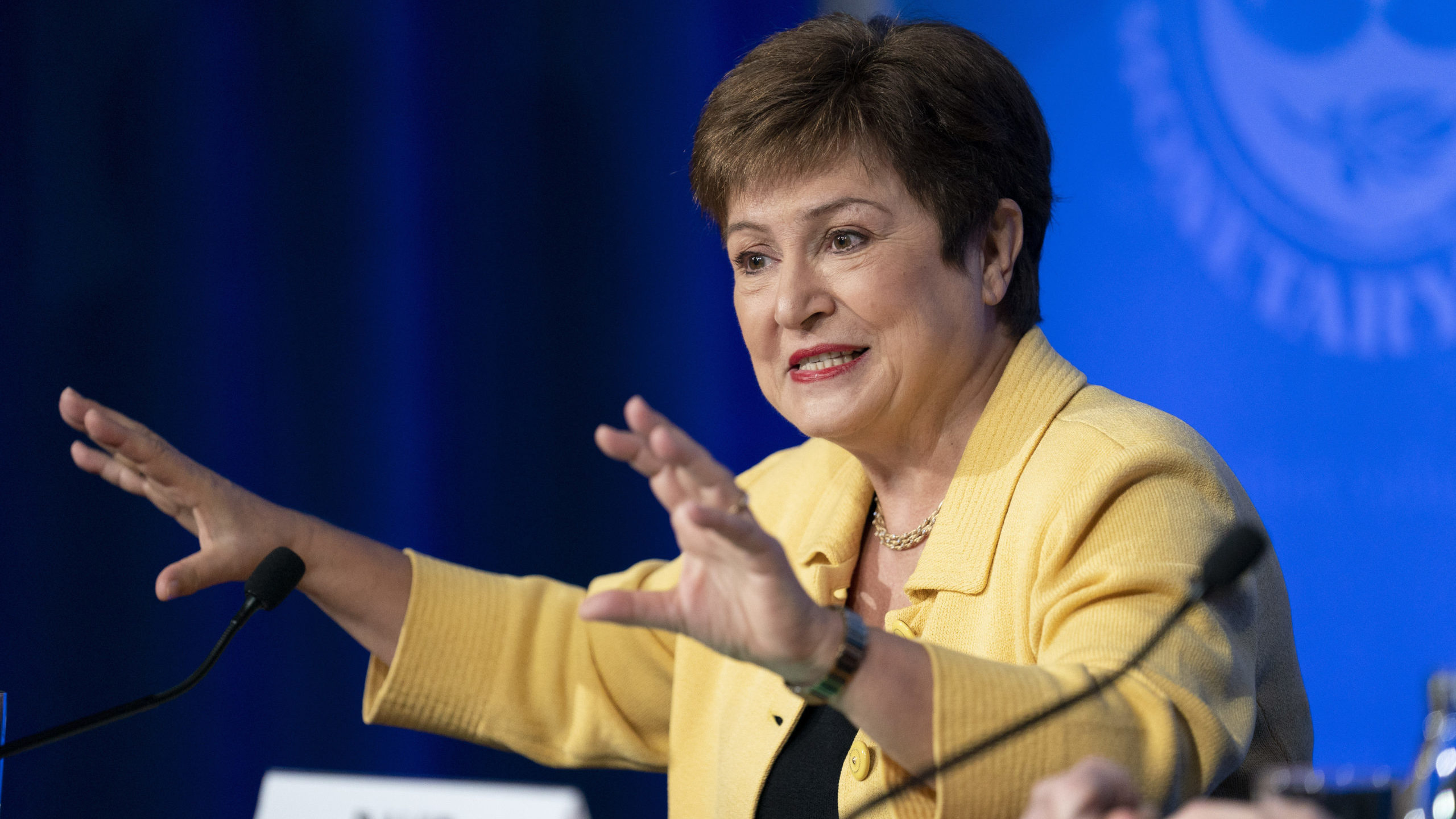Mideast States Turn to IMF to Stave Off Economic Collapse
Coronavirus knocks already ailing finances for a loop
The global COVID-19 pandemic has hit the Middle East and North Africa especially hard, creating severe financial and banking crises and making it harder to combat the disease. As a consequence, many governments have requested aid from the International Monetary Fund (IMF), particularly those whose economies were already on the rocks such as Iraq, Lebanon and Egypt.
The IMF, which on March 4 announced the allocation of $50 billion to tackle the epidemic, mostly interest-free, suggested that the Middle East would suffer a significant decline in economic growth in 2020 due to the coronavirus. The Fund said dozens of countries had applied for loans, including 12 in the Middle East and Central Asia.
This week, the head of the Fund, Kristalina Georgieva, expressed optimism to Lebanon’s Prime Minister Hassan Diab regarding reaching an agreement to provide initial support estimated at $3 billion by the end of the current year, which would help to address the crippling shortage of foreign currency in the Land of the Cedars.
The novel coronavirus reached the region in February and confirmed cases across the Middle East now approach 500,000. The greatest number of cases are in Turkey and Iran, which together account for more than half of the region’s total.
Marwan Iskandar, chief economic commentator for Beirut’s An-Nahar newspaper, revealed to The Media Line that the Lebanese government had identified the need for a $10 billion loan already before the coronavirus pandemic but that this was not passed on to the IMF due to “partisan opposition” in the country. “The delay had to do with considering the IMF as an American institution, while in reality, it is an international body and universal,” he said.
Lebanon’s public debt of over $90 billion had many causes, chief among them partisan disagreements, Iskandar explained. “The deficit is huge and the requested loan isn’t enough; Lebanon has accumulated substantial financial obligations, including $45 billion from the electricity sector.”
He added that Lebanon was the only country in the region where a quarter of the workers were state employees. “We have between 330,000 and 350,000 government employees out of the 1.2 million working citizens in the country, which adds to the burden on the Lebanese state budget.
“Therefore, we need to develop certain sectors in the country, especially given that China has shown interest in developing the Tripoli port, which is strategic for it as it serves Syria as well,” he elaborated. “Also, we should develop the electricity sector to produce more power. For instance, our neighboring country Jordan built a power plant that generates as much electricity as is produced in the whole country [of Lebanon].”
Iskandar pointed out that Amman sells one kilowatt for 6 cents, while Beirut sells the same amount for 28 cents. “There’s no salvation in Lebanon except through reform; banks can no longer lend to the government, or even to their own clients. For example, the IMF stipulated that Lebanon reform the electricity sector [as a condition of receiving aid], instead of reducing the deficit.”
Experts in the region say that some governments are asking for grants rather than loans that they cannot commit to repay, fearing that recession will turn into economic collapse due to curfews, closure of airports, suspension of travel and other compulsory measures taken to fight the novel coronavirus.
Fadel Abu Raghef, an Iraqi political analyst and security expert, told The Media Line that Baghdad was one such nation looking for grants, as loans would only add to the state’s debt that had accumulated since the US-led invasion in 2003, amid inability to pay in the future.
“Iraq is a pastoral country that hasn’t diversified or developed its resources, where Baghdad relied completely on oil export revenues; Baghdad did not focus on other sectors such as farming, trade and manufacturing,” he said. “The country isn’t self-sufficient; it’s dependent on imports.”
The economy was in desperate need of immediate help, as Baghdad faced not only a financial crisis but a medical crisis as well, Abu Raghef said. However, the acceptance of the new government by most parties in the country was facilitating its work during this difficult time. “The government of [Prime Minister Mustafa] al-Kadhimi is close to both the Eastern and Western camps in Iraq,” he said.
Mansour Rajeh, a Yemeni economic expert based in Cairo who has held various administrative and political positions at the Central Bank of Yemen, told The Media Line that Egypt’s economy would be hurt by the global pandemic, especially the country’s foreign currency revenue.
“In particular [income] from tourism, remittances of Egyptian expatriates and the Suez Canal revenue,” he said. Therefore, he stressed the need to compensate for the losses from other resources. “The Egyptian government saw that the IMF was one of the institutions to resort to during such a time.”
He stressed that Cairo would be able to repay a loan, given that the Egyptian economy’s performance had been excellent for the past four years due to a comprehensive reform program that focused on enhancing revenues while reducing government expenses. “The IMF recognized that improvement, which has given Egypt a big chance to receive the loan,” Rajeh said.
Tunisia was the first state in the region to receive an IMF loan during the present crisis. On March 24, Finance Minister Nizar Yaïche announced that the Fund would provide $400 million to assist the country in confronting the virus, adding that the money would be disbursed within the next three weeks.
On the other hand, there is Iran, which for the first time in nearly 60 years has urgently requested the IMF’s help, relying, as stated in a tweet by the Iranian foreign minister, on the pledge by the head of Fund “and her assurance that affected countries will be supported by the rapid financing tool.”


